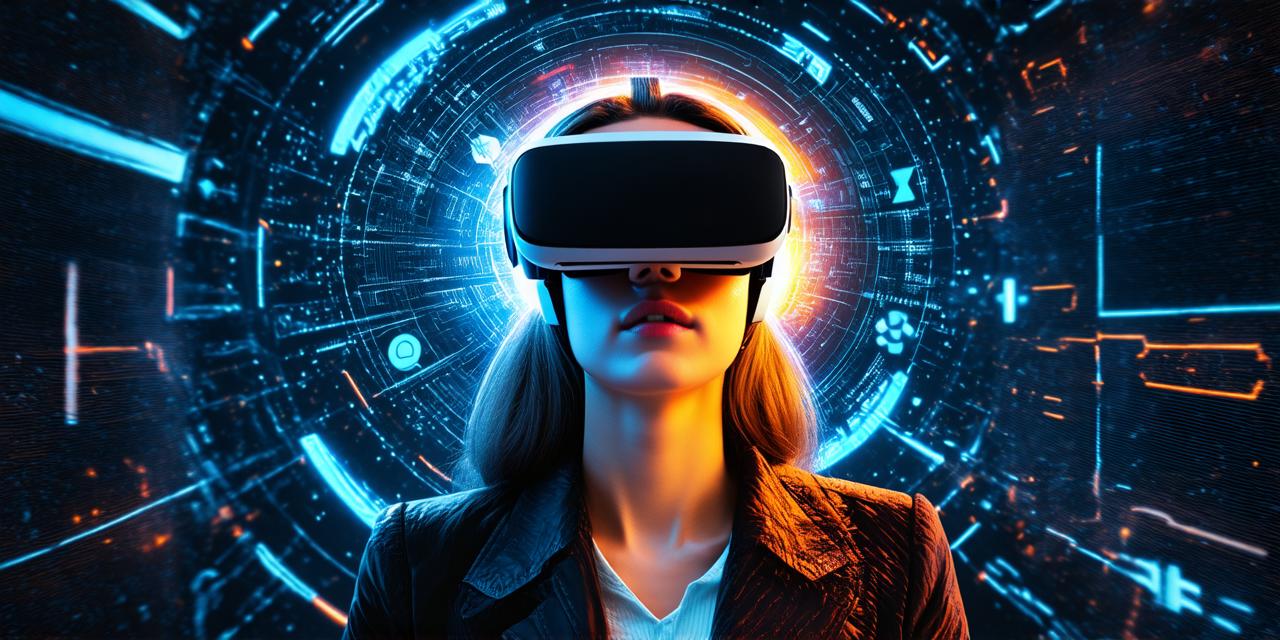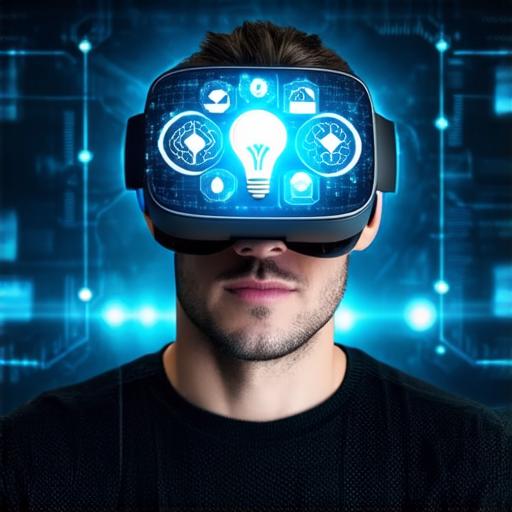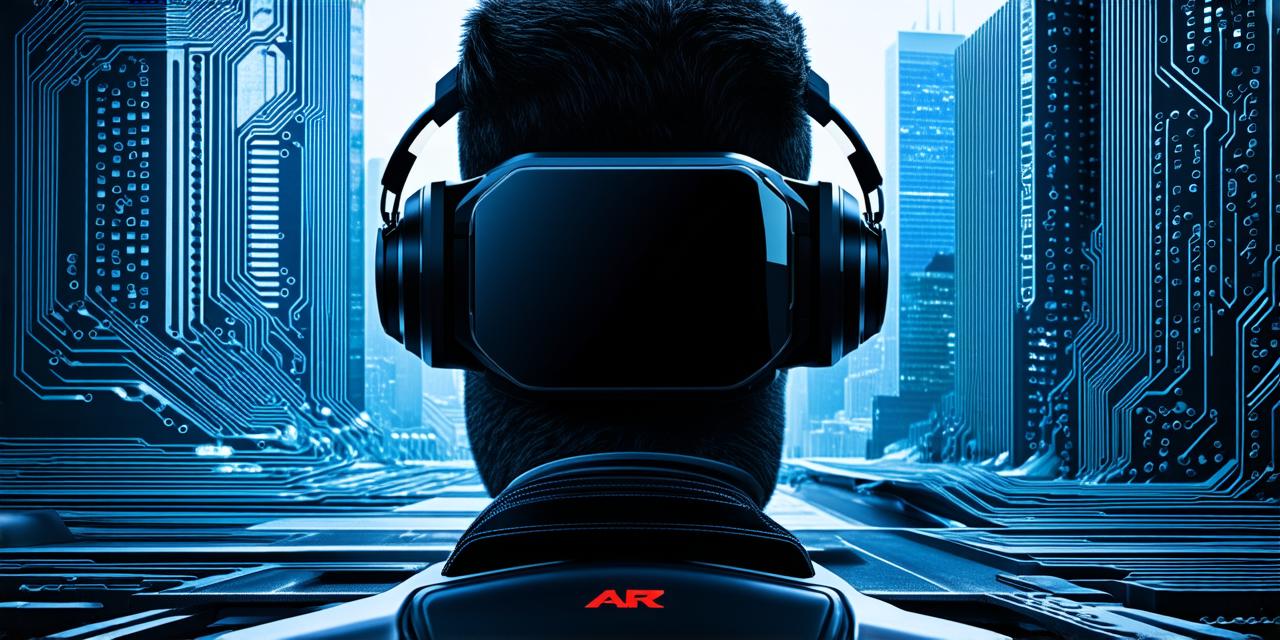
How Does Virtual Reality Influence Cognitive Development?
- 0

How Virtual Reality Influences Cognitive Development: A Comprehensive Guide for Mixed Reality Developers
Virtual reality (VR) technology is transforming the way we interact with digital environments. With its immersive and interactive nature, VR has been shown to have a significant impact on cognitive development, particularly in children. In this article, we will explore how virtual reality influences cognitive development and provide practical tips for mixed reality developers to create engaging and effective VR experiences.
The Impact of Virtual Reality on Cognitive Development
Virtual reality technology provides an immersive and interactive experience that can have a significant impact on cognitive development. According to research, VR has been shown to improve memory, attention, problem-solving skills, and spatial awareness.
Memory
Studies have shown that VR experiences can enhance memory retention by creating a more engaging and immersive learning experience. For example, a study published in the journal Neuropsychology found that students who learned through a VR simulation of a historical event had better recall of the event compared to those who learned through traditional teaching methods.
Attention
Virtual reality technology can also improve attention by creating an environment that is highly engaging and requires constant focus. This increased attention can lead to improved memory retention and enhanced problem-solving skills. For example, a study published in the journal Frontiers in Neuroscience found that participants who completed a VR task that required sustained attention had better performance on subsequent cognitive tasks compared to those who completed a non-VR task.
Problem-Solving Skills
Virtual reality technology can also enhance problem-solving skills by providing an environment that allows users to practice and apply their skills in a safe and controlled manner. For example, a study published in the journal Frontiers in Human Neuroscience found that participants who completed a VR task that required spatial reasoning had better performance on subsequent cognitive tasks compared to those who completed a non-VR task.
Spatial Awareness
Virtual reality technology can also improve spatial awareness by providing an environment that is highly interactive and allows users to explore and manipulate objects in 3D space. For example, a study published in the journal Frontiers in Human Neuroscience found that participants who completed a VR task that required spatial navigation had better performance on subsequent cognitive tasks compared to those who completed a non-VR task.
Case Studies: How Virtual Reality is Being Used to Enhance Cognitive Development
Virtual reality technology is being used in a variety of settings to enhance cognitive development, particularly in children. Here are some examples of how virtual reality is being used to improve memory, attention, problem-solving skills, and spatial awareness:
Memory
One example of how virtual reality is being used to improve memory is through the use of historical simulations. For example, a company called VirtualSpeech has created a VR experience that allows students to explore ancient Rome in a highly immersive manner. By engaging with the environment and exploring the sights and sounds of ancient Rome, students are able to better retain information about the city and its history.
Attention
Another example of how virtual reality is being used to improve attention is through the use of educational games. For example, a company called Nearpod VR has created a VR experience that allows students to explore the solar system in a highly immersive manner. By engaging with the environment and exploring the planets and their moons, students are able to maintain sustained attention and improve memory retention.
Problem-Solving Skills
Virtual reality technology is also being used to enhance problem-solving skills. For example, a company called PuzzleVR has created a VR experience that allows users to solve puzzles in a highly immersive manner. By engaging with the environment and exploring different solutions to a problem, users are able to develop critical thinking and problem-solving skills.
Spatial Awareness
Finally, virtual reality technology is being used to improve spatial awareness. For example, a company called Oculus has created a VR experience that allows users to explore the human body in a highly immersive manner. By engaging with the environment and exploring different parts of the body, users are able to develop a better understanding of spatial relationships and improve their ability to navigate complex environments.
How Mixed Reality Developers Can Create Effective VR Experiences that Enhance Cognitive Development
Now that we have explored the impact of virtual reality on cognitive development and some examples of how it is being used, let’s look at how mixed reality developers can create effective VR experiences that enhance cognitive development.
Engaging Content
One of the most important aspects of creating an effective VR experience is engaging content. This means creating content that is highly immersive and interactive, and that provides users with a sense of purpose and motivation to explore the environment. Mixed reality developers can achieve this by incorporating elements such as storytelling, puzzles, and games into their VR experiences.
Realistic Environment
Another important aspect of creating an effective VR experience is a realistic environment. This means creating an environment that accurately simulates real-world environments and objects, and that provides users with a sense of presence within the environment. Mixed reality developers can achieve this by using advanced 3D modeling techniques and by incorporating elements such as haptic feedback and spatial audio to enhance the immersive experience.
Progression and Feedback
Finally, an effective VR experience should provide users with progression and feedback. This means providing users with clear goals and objectives, and providing them with feedback on their performance throughout the experience. Mixed reality developers can achieve this by incorporating elements such as scoring systems, level progression, and performance metrics into their VR experiences.
Conclusion: The Potential of Virtual Reality to Enhance Cognitive Development
Virtual reality technology has the potential to enhance cognitive development in a variety of ways. By creating immersive and interactive environments that engage users and provide them with a sense of purpose and motivation, mixed reality developers can create VR experiences that improve memory, attention, problem-solving skills, and spatial awareness.
FAQs
Q: What are some common ways in which virtual reality is being used to enhance cognitive development?
A: Virtual reality is being used in a variety of settings to enhance cognitive development, particularly in children. Some common ways include historical simulations, educational games, puzzle-solving experiences, and spatial awareness training.
Q: How can mixed reality developers create effective VR experiences that enhance cognitive development?
A: Mixed reality developers can create effective VR experiences by incorporating engaging content, a realistic environment, progression and feedback into their designs.
Q: What are some examples of how virtual reality is being used to improve memory, attention, problem-solving skills, and spatial awareness?
A: Virtual reality is being used in a variety of settings to improve memory, attention, problem-solving skills, and spatial awareness. Some examples include historical simulations, educational games, puzzle-solving experiences, and spatial awareness training.

